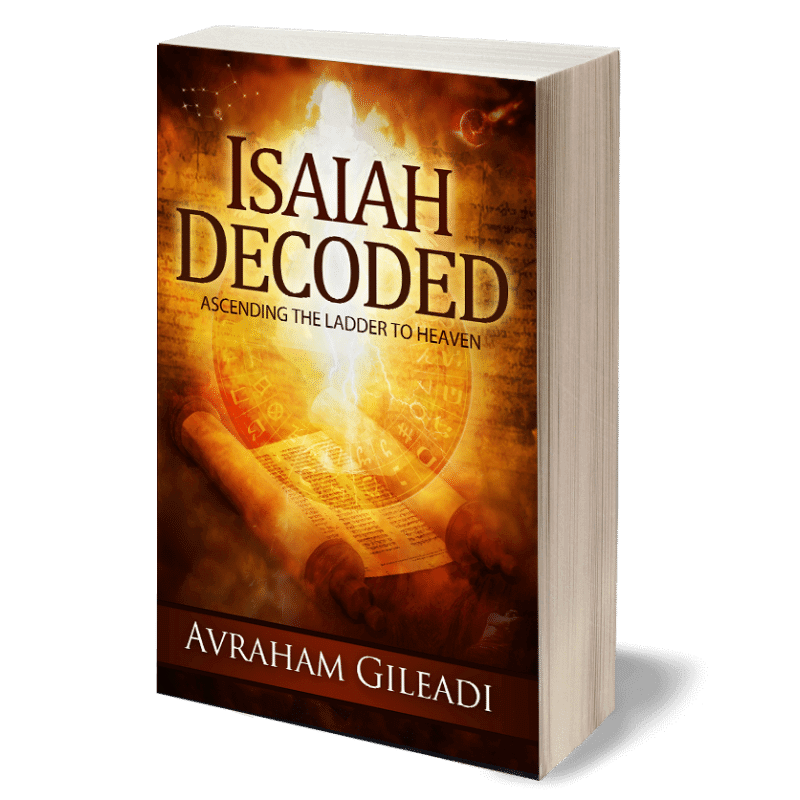Isaiah Reveals Seven Ascending and Descending Spiritual Levels
The very idea of a person going to either heaven or hell violates God’s justice and mercy. Isaiah redefines that idea by describing seven distinct categories of people. While some compare to chaotic entities, others resemble celestial bodies—plus categories in between. So says Paul:
1 Corinthians 15:41–42
There is one glory of the sun,
and another glory of the moon,
and another glory of the stars.
For as one star differs from another star in glory
so also is the resurrection of the dead.
A point Paul makes is that the spiritual level we end up on in this life is the one on which we enter the next life. In accordance with that idea, people who appear in the Book of Isaiah aren’t incidental to the story. A closer look shows that they define higher and lower spiritual levels.
Once we identify the spiritual levels Isaiah reveals and figure out who people are in each category, we easily discover where we match up and can decide how far we want life to take us. The exciting part is that God gives us the freedom to go up or down the ladder as we choose.
That does away with another flawed idea—that “righteous” people are those who think and act as we do, who follow our standard of self-righteousness; while “the wicked” are those who think and act differently. Isaiah, on the other hand, bases his paradigm on which law people keep:
Isaiah 24:5
The earth lies polluted under its inhabitants:
they have transgressed the laws,
changed the ordinances,
set at nought the ancient covenant.
Isaiah 51:7
Hear me, you who know righteousness,
O people in whose heart is my law.
Persons who live a higher law by emulating God’s divine attributes are reborn on higher spiritual levels while those who keep lesser laws atrophy. God re-creates those who ascend closer to his image and likeness while the opposite is true for those who descend—they become de-created.
The idea of a “ladder to heaven”—providing a way for humanity to ascend or descend—first occurs in the Bible in Jacob’s dream. Jacob describes what he saw as “the house of God” and “the gate of heaven,” with Israel’s God Jehovah appearing at the top (Genesis 28:13, 17):
Genesis 28:12
He dreamed, and behold a ladder set up on the earth,
and the top of it reached to heaven.
And behold the angels of God ascending and descending upon it.
Angels, who are “men” and “fellowservants” of God (see Daniel 10:16–18; Revelation 22:8–9), similarly form higher and lower classes, so that what exists on earth below parallels what exists above. Realms of darkness, on the other hand, correspond with the basest levels of humanity.
Just as angels minister to higher and lower categories on earth, so those whom they serve minister to their own families and communities. Examples of a spiritual hierarchy appear in the way Isaiah’s Zion/Jerusalem category of people ministers to the less loyal Jacob/Israel category:
Isaiah 40:9
Scale the mountain heights,
O Zion, herald of good tidings.
Raise your voice mightily,
O Jerusalem, messenger of good news.
Make yourself heard, be not afraid;
proclaim to the cities of Judah: Behold your God!
Isaiah 43:22
You do not call upon me, O Jacob;
you have grown weary of me, O Israel.
Above these, are God’s endtime “servants,” those whom God empowers to deliver righteous persons from calamity in a mass exodus out of “Babylon” or the world. They gather all whom he re-creates as his “sons” and “daughters” to new lands of inheritance in God’s Day of Judgment:
Isaiah 43:6–7
Bring my sons from afar
and my daughters from the end of the earth—
all who are called by my name,
whom I have formed, molded and wrought
for my own glory.
Isaiah 54:17
Whatever weapon is devised against you,
it shall not succeed;
every tongue that rises to accuse you,
you shall refute.
This is the heritage of the servants of Jehovah,
and such is their vindication by me, says Jehovah.

Recommended Reading and Listening:
Avraham Gileadi, Isaiah Decoded: Ascending the Ladder to Heaven. The best all-time layman’s comprehensive overview of Isaiah’s prophetic message for Judeo-Christian readers based on the analysis of Hebrew literary patterns. Hebraeus Press, 2013: 357 pages. Softcover $27.95; E-Book $9.95; MP3 download $15.95.

